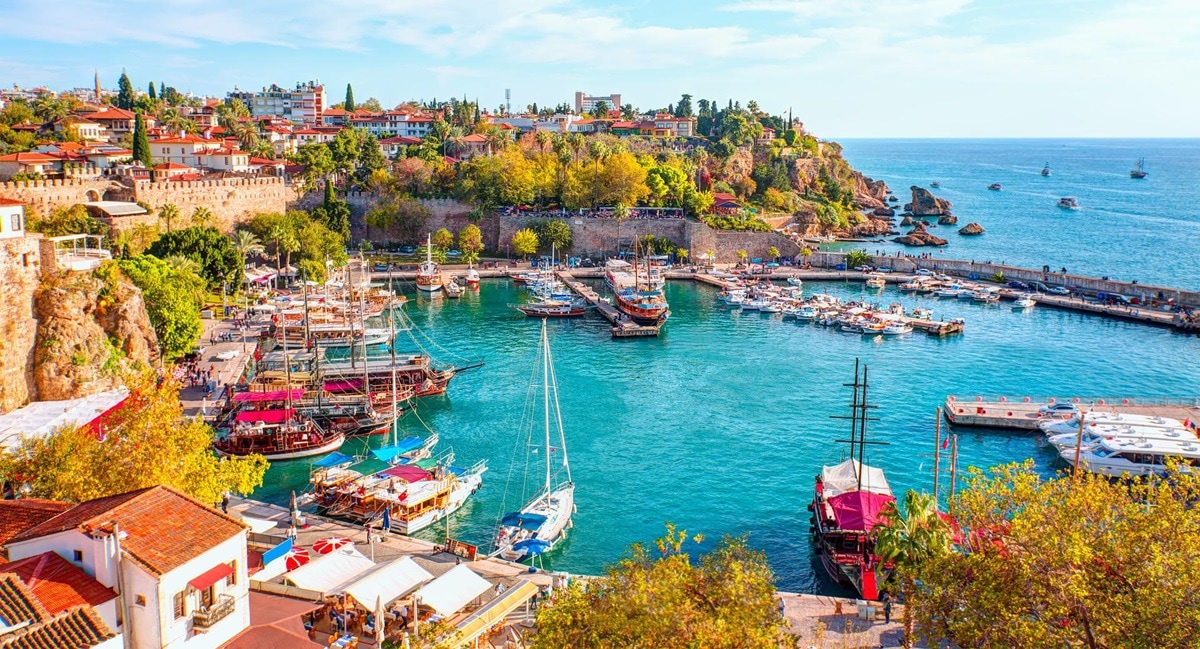 Across Europe, consumer prices have risen almost 9%, exceeding economists’ forecasts and showing no slowdown (Source: Pixabay)
Across Europe, consumer prices have risen almost 9%, exceeding economists’ forecasts and showing no slowdown (Source: Pixabay)When the euro and the US dollar reached parity in July, it was the first time the two currencies could be exchanged at an equal value in two decades.
For travelers, the news rang like a dinner bell, especially with the August high season approaching. Two years of lockdowns and border restrictions have Americans desperate to visit the Continent, eager to spend on shopping trips and splurge on five-star hotels.
But parity—which in its true sense was short-lived; the exchange rate is now hovering at about 0.98 euros to the dollar—isn’t enough to guarantee good deals abroad. Planning a trip to capitalize on a newly great exchange rate (in any currency) is a moot point if consumers don’t also consider inflation, which varies tremendously country to country.
Subscriber Only Stories
Across Europe, consumer prices have risen almost 9%, exceeding economists’ forecasts and showing no slowdown. Current predictions stipulate that prices will peak toward yearend and drop sharply in 2023. Until then, travelers looking to get a good deal may be wise to consider how inflation—and not just exchange rates—is affecting prices in each destination on their list.
In most cases your $100 dinner tab will only swing a few bucks in either direction, and in many cases inflation has compensated for the gains of the dollar, producing a perfect wash. But there are exceptions where local economies have been more disrupted. On the extreme ends, consumers may save up to 59% on their vacation expenses or spend an additional 7%.
Here’s a ranking of how much more or less your dollar will stretch in popular European destinations, taking into account currency value and inflation. Calculations use the most recent consumer price index data and exchange rates from Aug. 8, all compared against pre-pandemic baselines (for both exchange rates and CPI) from the first week of March 2020.
The Best Values Can Be Found In …
Turkey
In March 2020, $100 = 609 lira
In August 2022, $100 = 1,795 lira
But with inflation, a meal that once cost 609 lira ($100) …
… now costs 744 lira ($41)
59% less expensive
France
In March 2020, $100 = €89
In August 2022, $100 = €98
But with inflation, a meal that once cost €89 ($100) …
… now costs €96 ($98)
2% less expensive
Expect to Pay More In…
Iceland
In March 2020, $100 = 12,656 krónur
In August 2022, $100 = 13,756 krónur
But with inflation, a meal that once cost 12,656 krónur ($100) …
… now costs 14,743 krónur ($107)
7% more expensive
UK
In March 2020, $100 = £77
In August 2022, $100 = £83
But with inflation, a meal that once cost £77 ($100) …
… now costs £86 ($104)
4% more expensive
 Turkey is 59% less expensive (Source: Pixabay)
Turkey is 59% less expensive (Source: Pixabay) Spain
In March 2020, $100 = €89
In August 2022, $100 = €98
But with inflation, a meal that once cost €89 ($100) …
… now costs €102 ($104)
4% more expensive
Netherlands
In March 2020, $100 = €89
In August 2022, $100 = €98
But with inflation, a meal that once cost €89 ($100) …
… now costs €101 ($103)
3% more expensive
Belgium
In March 2020, $100 = €89
In August 2022, $100 = €98
But with inflation, a meal that once cost €89 ($100) …
… now costs €100 ($102)
2% more expensive
Sweden
In March 2020, $100 = 936 kronor
In August 2022, $100 = 1,017 kronor
But with inflation, a meal that once cost 936 kronor ($100) …
… now costs 1,040 kronor ($102)
2% more expensive
Austria
In March 2020, $100 = €89
In August 2022, $100 = €98
But with inflation, a meal that once cost €89 ($100) …
… now costs €99 ($101)
1% more expensive
Germany
In March 2020, $100 = €89
In August 2022, $100 = €98
But with inflation, a meal that once cost €89 ($100) …
… now costs €99 ($101)
1% more expensive
There’s No Difference in What You’ll Pay In …
Denmark
In March 2020, $100 = 662 kroner
In August 2022, $100 = 730 kroner
But with inflation, a meal that once cost 662 kroner ($100) …
… now costs 728 kroner ($100)
Finland
In March 2020, $100 = €89
In August 2022, $100 = €98
But with inflation, a meal that once cost €89 ($100) …
… now costs €98 ($100)
Greece
In March 2020, $100 = €89
In August 2022, $100 = €98
But with inflation, a meal that once cost €89 ($100) …
… now costs €98 ($100)
Ireland
In March 2020, $100 = €89
In August 2022, $100 = €98
But with inflation, a meal that once cost €89 ($100) …
… now costs €98 ($100)
Italy
In March 2020, $100 = €89
In August 2022, $100 = €98
But with inflation, a meal that once cost €89 ($100) …
… now costs €98 ($100)
Norway
In March 2020, $100 = €89
In August 2022, $100 = €98
But with inflation, a meal that once cost €89 ($100) …
… now costs €98 ($100)
Portugal
In March 2020, $100 = €89
In August 2022, $100 = €98
But with inflation, a meal that once cost €89 ($100) …
… now costs €98 ($100)
📣 For more lifestyle news, follow us on Instagram | Twitter | Facebook and don’t miss out on the latest updates!
- The Indian Express website has been rated GREEN for its credibility and trustworthiness by Newsguard, a global service that rates news sources for their journalistic standards.

